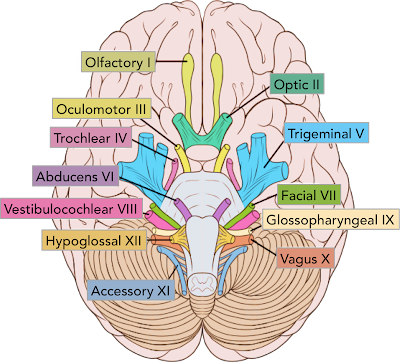What is a Circadian Rhythm? [Chronobiology]
Most living beings, even algae, have a special biological system that keeps their body in sync with day and night, their circadian rhythm. The way it does this is by responding to light or darkness, e.g. this is why we sleep at night and are awake during the day.
The term "circadian" is derived from the latin "circa diem" or "approximately a day".
So what produces/drives these circadian rhythms? The answer is BIOLOGICAL CLOCKS
These clocks are present in most cells, tissues and organs and are composed of proteins which all interact throughout the body. The biological clocks are all controlled and coordinated by a MASTER CLOCK (group of nerve cells in the hypothalamus called the superahiasmatic nucleus (SCN) which are connected to our optic nerves to detect light.
The main regulator of the circadian rhythm is in our hypothalamus: "a region of the forebrain below the thalamus which coordinates both the autonomic nervous system and the activity of the pituitary, controlling body temperature, thirst, hunger, and other homeostatic systems, and involved in sleep and emotional activity." [Google]

Aforementioned, the SCN is connected to our optic nerve. Light is a stimulus of this nerve, and this can cause certain genes to be expressed or turned off which would affect the structure of biological clocks (as they are made of proteins which can fold in a multitude of ways due to different hydrogen bonds forming between different amino acids)
The diagram at the top of the page shows the plethora of processes and things controlled by the rhythm, include hormone secretion, bowel suppression, higher blood pressure and body temperature etc. so our body function is heavily impacted when our circadian rhythms or biological clocks tick "out of time" which can cause sleep disorders, diabetes, obesity and bipolarity (mood affecting hormones would be released irregularly)
The main way that your biological clocks can tick out of time is your sleep pattern. According to the clock, we should sleep around 22:30, after sufficient melatonin* has been secreted and our bowel movements have been supressed, and wake up between 6:30 and 7:30. This is highly impractical for most and thus much of society have different biological clocks than a standardized one as shown above due to constantly sleeping at a different time each day.
*Melatonin is the hormone that makes you sleepy. It is inhibited by blue light from screens, therefore most people say that we should reduce screen-time near when we SHOULD sleep. Its also why most phones nowadays have a "night mode" which yellows the screen, reducing the amount of blue light hitting your retina.
Further Reading // Sources
https://en.wikipedia.org/wiki/Circadian_rhythm
https://www.nigms.nih.gov/Education/Pages/Factsheet_CircadianRhythms.aspx
https://earthsky.org/human-world/cool-facts-about-your-biological-clock
The term "circadian" is derived from the latin "circa diem" or "approximately a day".
So what produces/drives these circadian rhythms? The answer is BIOLOGICAL CLOCKS
These clocks are present in most cells, tissues and organs and are composed of proteins which all interact throughout the body. The biological clocks are all controlled and coordinated by a MASTER CLOCK (group of nerve cells in the hypothalamus called the superahiasmatic nucleus (SCN) which are connected to our optic nerves to detect light.
The main regulator of the circadian rhythm is in our hypothalamus: "a region of the forebrain below the thalamus which coordinates both the autonomic nervous system and the activity of the pituitary, controlling body temperature, thirst, hunger, and other homeostatic systems, and involved in sleep and emotional activity." [Google]

Aforementioned, the SCN is connected to our optic nerve. Light is a stimulus of this nerve, and this can cause certain genes to be expressed or turned off which would affect the structure of biological clocks (as they are made of proteins which can fold in a multitude of ways due to different hydrogen bonds forming between different amino acids)
The diagram at the top of the page shows the plethora of processes and things controlled by the rhythm, include hormone secretion, bowel suppression, higher blood pressure and body temperature etc. so our body function is heavily impacted when our circadian rhythms or biological clocks tick "out of time" which can cause sleep disorders, diabetes, obesity and bipolarity (mood affecting hormones would be released irregularly)
The main way that your biological clocks can tick out of time is your sleep pattern. According to the clock, we should sleep around 22:30, after sufficient melatonin* has been secreted and our bowel movements have been supressed, and wake up between 6:30 and 7:30. This is highly impractical for most and thus much of society have different biological clocks than a standardized one as shown above due to constantly sleeping at a different time each day.
*Melatonin is the hormone that makes you sleepy. It is inhibited by blue light from screens, therefore most people say that we should reduce screen-time near when we SHOULD sleep. Its also why most phones nowadays have a "night mode" which yellows the screen, reducing the amount of blue light hitting your retina.
------------------------------------------------------------------------------------------
Further Reading // Sources
https://en.wikipedia.org/wiki/Circadian_rhythm
https://www.nigms.nih.gov/Education/Pages/Factsheet_CircadianRhythms.aspx
https://earthsky.org/human-world/cool-facts-about-your-biological-clock




Comments
Post a Comment